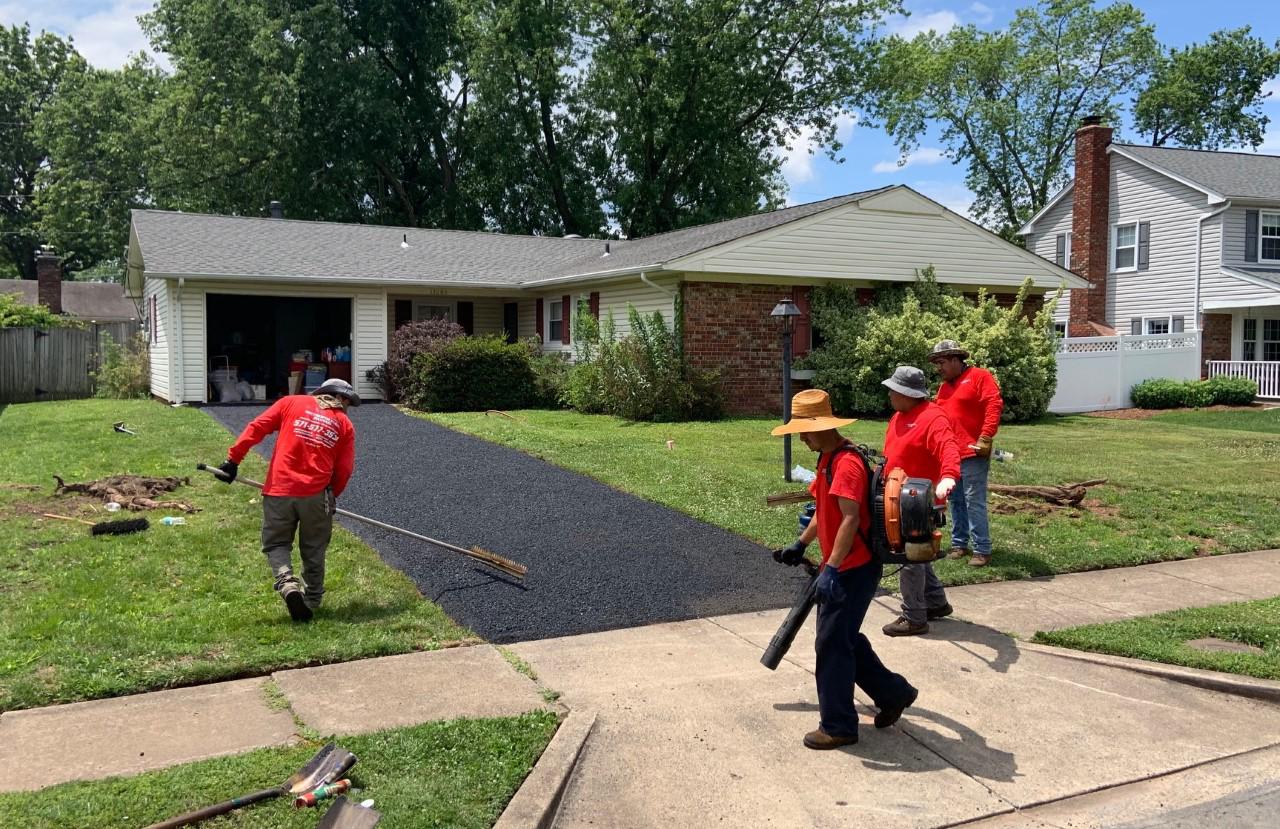Asphalt Maintenance in Leesburg VA
Keep your Asphalt in the Best Condition
Now your new driveway has been paved by us we want to teach you how to maintain it to get that full lifespan out of your asphalt. Please read the content below to better understand what to and not to do to your newly paved driveway.
Liquid tar in asphalt needs time to harden and cure (usually 6 – 12 months); and, your driveway will remain soft and pliable in the interim. You may walk on your new driveway immediately, but keep automobile traffic off of it for at least three full days (and longer in hotter temperatures). Even after the blacktop has cured, do not expect it to be as hard as concrete. The longer you wait to drive on your new driveway the better.
Your new asphalt will soften and harden as temperatures rise and fall. Watering down your driveway with a hose on hot days will cool and temporarily harden the asphalt. This is helpful, but not mandatory. If soapsuds should appear, do not be alarmed. This is a reaction between the diesel fuel found in asphalt and a high chlorine content found in some city water. Although every effort is made to avoid puddles in your driveway, some small puddles are inevitable depending on the natural slope and drainage of your ground.
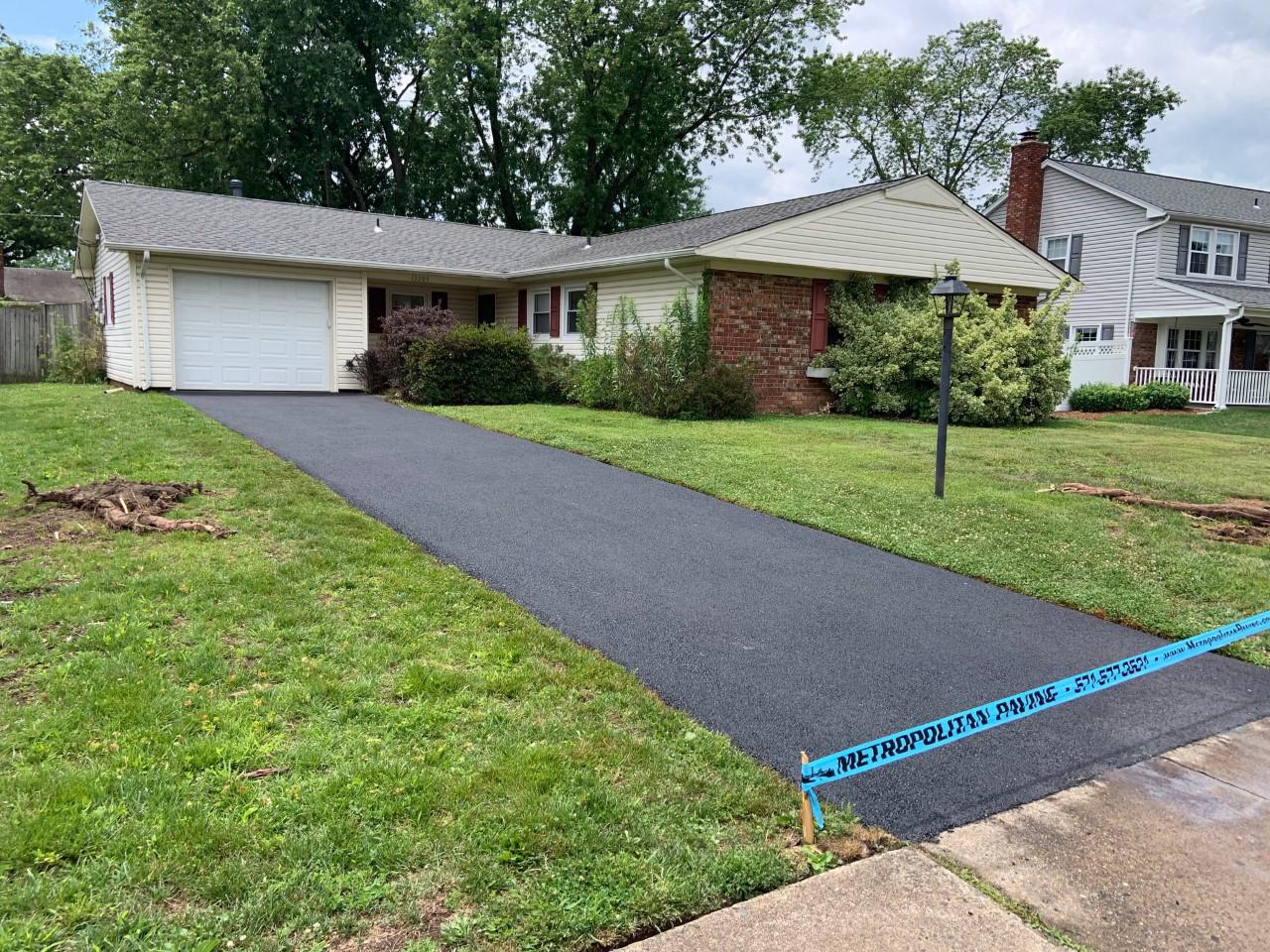
Things to Avoid
Automobiles starting out too fast, pulling in too quickly, and just plain driving too fast can scar asphalt.
During the first 6 – 12 months (while your driveway is curing), do not park in the same spot every time. Do not turn your steering wheel back and forth when your car is not moving this will cause unwanted tire marks.
Avoid using jack stands or car ramps, unless a piece of plywood is placed under them to help distribute the weight.
Excessive weight from large heavy vehicles can depress your new asphalt. Keep oil trucks, concrete trucks, and any other heavy trucks off of your new driveway. When storing campers for long periods of time, place a piece of plywood under the tongue jack and also under the tires this will help distribute the weight.
Lawn chairs and bicycle and motorcycle kickstands exert weight on concentrated areas and will create holes and depressions in your new driveway. Especially watch out for those pointy high heels during the warm months when your driveway is new.
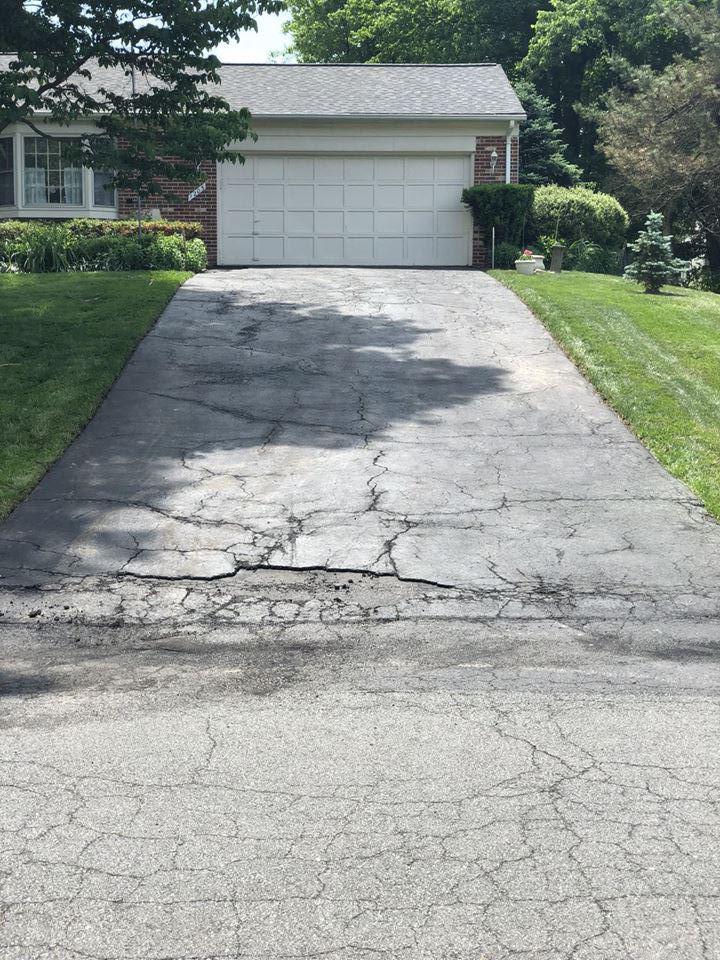
The edges are the weakest part of your driveway due to the lack of side support. Avoid driving on the edges since they will crack and crumble. The edges are also first to crack and tend to break off when too high off the surface, We suggest building up the sides of our driveway with topsoil. This will support the edges and enhance the appearance after the grass has grown in.
Avoid gasoline, oil anti-freeze, power steering and transmission fluid spills and leaks. These will dilute the liquid asphalt in your blacktop. Any hole left by these spills should be filled with cold patch. Any hairline cracks that may have developed over the winter due to the contraction and expansion of the ground should be filled with crack-filler. These products can be purchased from your local building supply store or you can call us for any repairs needed.

Asphalt Appearance Variance
Your driveway may look smoother in some areas than in others because of the makeup of asphalt. Asphalt has various sizes of stone, sand, liquid asphalt, and other ingredients that cause a varied texture on the surface. Also, Asphalt areas that have been raked and spread with hand tools may appear different in texture from those spread by a machine (Rocky texture vs Sandy texture.) A simple asphalt sealant will smooth this areas out making your driveway look all uniformed as 1 consistent texture.
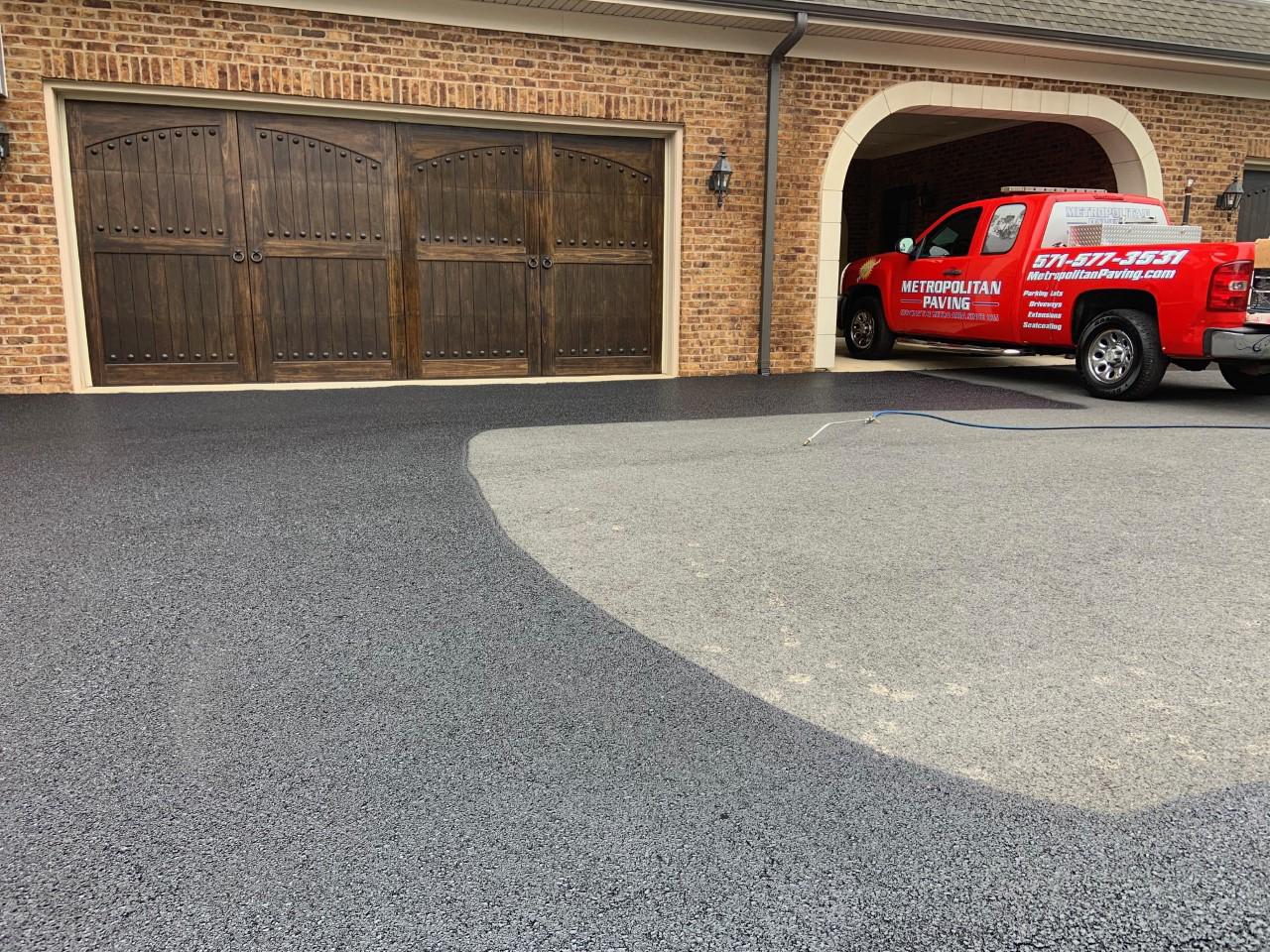
Asphalt Shedding
You may loose asphalt stones on your newly paved asphalt driveway we call this (shedding) THIS IS NORMAL. It happens in the first year your driveway is paved. It's simply the rocks that weren't washed enough at the asphalt plant during the making have stone dust on them so the liquid asphalt doesn't stick to the rock causing it to pop out of place when you drive over it. (YOUR DRIVEWAY IS NOT FALLING APART.) once the stones have fallen out simply brush them off the driveway or use a leaf blower to clean the surface and continue to use your driveway as you normally would, it will NOT continue to unravel down to nothing or cause a pot hole, you may have a rougher texture in those areas now due to the stone missing in its place, Not to worry this is why asphalt sealants are made to seal up all those loose stone areas/ air pockets and uneven areas to continue the smooth asphalt look.” (“The thicker the sealer, the smoother the driveway”) This unraveling/ shedding mostly happens in the colder fall months we install asphalt.
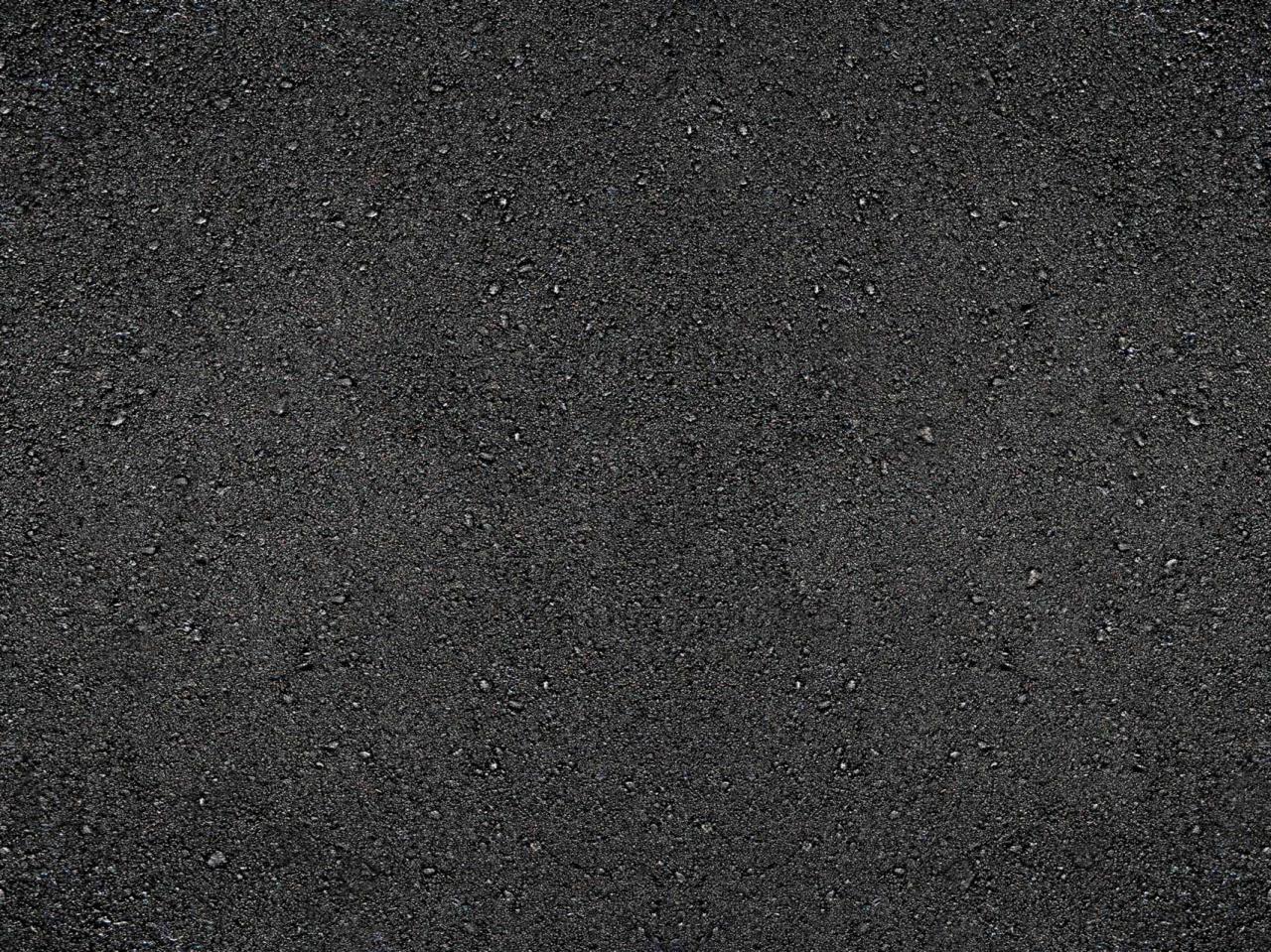
Seal Coating
Your asphalt driveway represents a substantial investment. It's also the welcome mat to your home. A properly maintained driveway reflects your pride and commitment to maintaining an attractive home and property. It also makes economic sense to maintain your driveway. With a systematic program of pavement maintenance including crack filling and applying sealer every 1-3 years, your asphalt driveway can last over 25 years. Sealing your driveway with the proper sealer gives your driveway that "new appearance", enhancing curb appeal as well as property value.
Using a quality seal coat will increase the life and appearance of your driveway. Seal coating your driveway will lock in the existing oils to keep the asphalt flexible, which reduces cracking. It is very important that you use only top-quality seal coat. There are two different types of asphalt sealants: water based driveway sealer and oil based driveway sealer. We recommend you sealcoat your driveway within the first 6 months of your asphalt install with a heated oil based sealant provided by us in order to keep your warranty intact. Failure to do so would result in a warranty void.
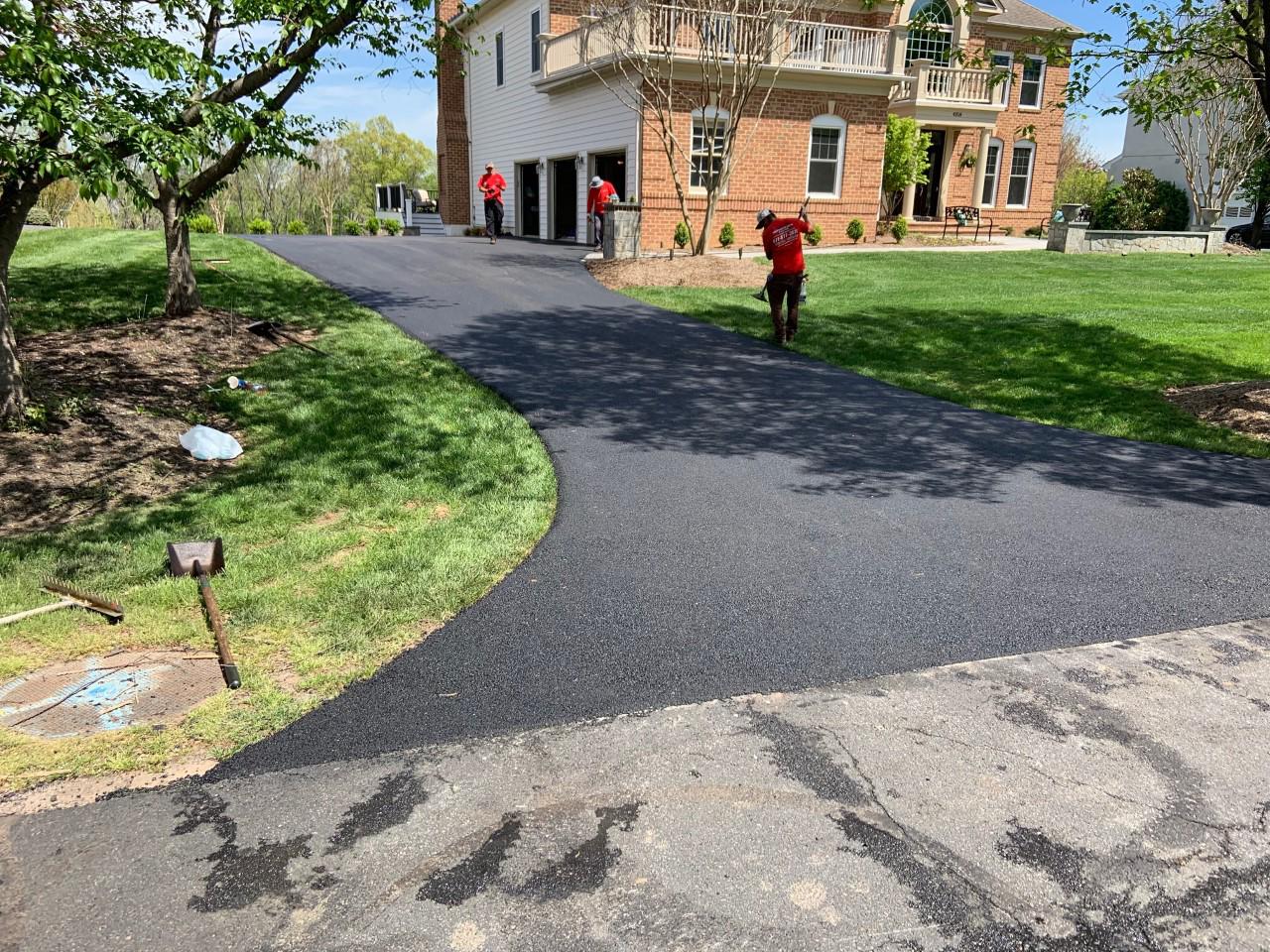
Water Based Seal Coating
Water based driveway sealer is a non toxic Eco friendly asphalt sealants that can be either applied by hand with a broom or brush or can be sprayed through a machine. It's thick substance helps to seal up stones air pockets and cracks on asphalt and gives your driveway a very slick smooth surface. This sealant can only be applied 6 months after your newly paved driveway has been installed. This gives your asphalt time to cure and the petroleum in the asphalt time to dry up, other wise the water based sealant won't stick to the oily asphalt surface. It should only be applied every 2-5 years to avoid it build up. It is normally applied to commercial areas and doesn't require a contractors licenses to purchase. So for the do it your selfs this might be the product for you. The color is not exactly a jet black like newly paved asphalt but still makes a residential driveway look fresh and clean.
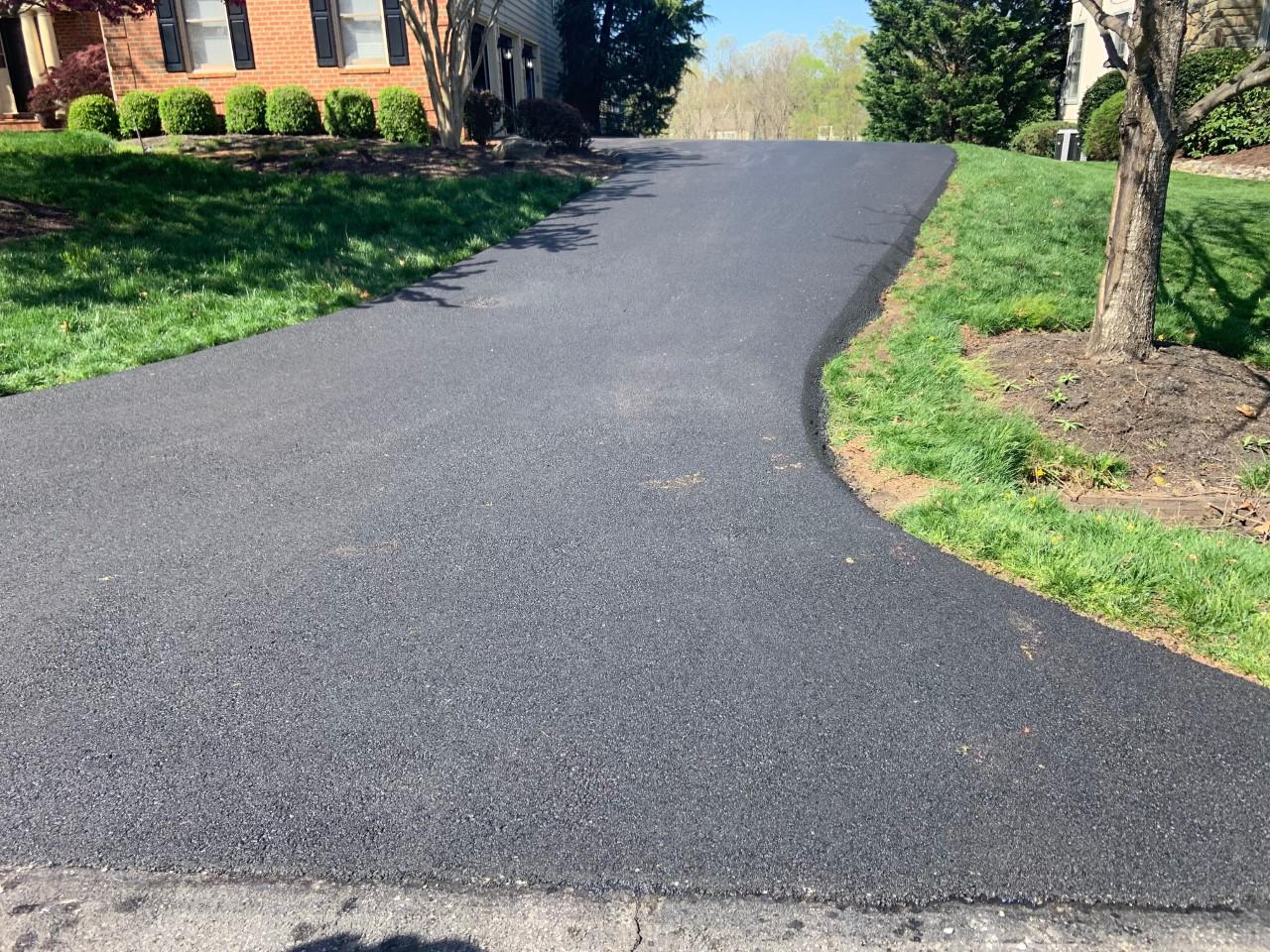
Oil Based Seal Coating
Oil based driveway sealers are a 100% petroleum based product. The same oils the asphalt plant uses to make asphalt with are pumped directly into our tanks and are sprayed down on your asphalt driveway. The sealant is heated to 350 degrees fahrenheit and can only be sprayed through a machine, this provides a even coat over your driveway witch will last 3 times longer than water based sealers. Being a petroleum product the sealant works with your asphalt driveway soaking in keeping the asphalt moist and flexible reducing cracking and crumbling overtime. It requires a contractors license to purchase and is about twice as much as water base sealant prices but well worth it. As well as it does not make asphalt smooth as butter when it is applied since it's a thin coat that gets applied, you'll still have textures in your driveway but it does help better with traction in the winter as well as it makes every driveway look like it has just been newly paved.Both products have same drying time of 24hrs so please keep off until then.
